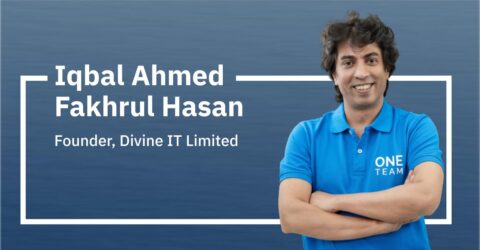
Dr Mohammad Didare Alam Muhsin
August 15 is a tragic memory in the life of this country and nation. It’s a sad day painted with blood. A day in which the architect of independent Bangladesh, Father of the Nation Bangabandhu Sheikh Mujibur Rahman and most of his family members were brutally killed by some misguided army personnel in 1975.
Fortunately, his eldest daughter, Prime Minister Sheikh Hasina, and youngest daughter, Sheikh Rehana, being outside the country, survived. It is natural that this country and nation will want to forget this legend of sorrow and grief, but still this day will come again and again every year in the life of this nation to revive their pain.
In the history of this world, many cruel and brutal political murders could be found, but not too many instances of such kind. The question is: if this incident had a lasting impact on the progress of the nation. It may not have been time yet to draw any conclusion. Ups and downs are part of history. To determine someone’s place in the history, it will critically analyse his feats — sooner or later. Propaganda, oppression, murder — these may disrupt the course of history for a while, but those rare, great personalities, who have played a pivotal role in the development of a nation in the twists and turns of its history, become radiant in their own glory again and again.
In 2004, BBC’s Bengali Service conducted an opinion poll to find out the Greatest Bengali of all time in the nation’s history of thousand years and compiled a list of the top 20. The poll was preceded by a similar BBC poll in 2002 for finding 100 Greatest Britons. The poll was participated by Bengalis across the world including those from Bangladesh, India (West Bengal, Tripura, Orissa, and Assam) and overseas Bengali communities. Bangabandhu topped the list with highest number of points. Interestingly, Bangabandhu bagged almost twice as many points as Ravi Tagore who came second in the list after him.In the long history of the liberation struggle of the people of this country, they have seen many great leaders like AK Fazlul Haque, Abdul Hamid Khan Bhasani and Hossain Shaheed Suhrawardy, each of whom had been kind of a banyan tree in this arena. What magic wand did Sheikh Mujibur Rahman get, after which he surpassed them and climbed to such a peak of popularity that this land had never seen in the past and might not see in the future, either? Scholars believe that it was his historic six-point movement, in which the people of this region found the directives for their political and economic liberation. Through his movement, he gave language to the sense of ethnic and cultural uniqueness and individuality of the people of this country, enlivening and uniting them in their desire for liberation. Herein lies the secret of Sheikh Mujibur Rahman becoming the true Bangabandhu (Friend of Bengal) and the single, unique, undisputed leader of the Bengali nation. His fiery speech on March 7, 1971, made it clear to the freedom-loving people that the final moment of their liberation struggle was imminent. That was why when the Pakistani forces started cracking down on the people of this country on March 25, they did not have any hesitation to decide to jump into the war. Although he was physically absent from the long 9-month war on the battlefield, it had always been his leadership that inspired the people of this country in the war. When the liberated Bangabandhu returned to the country with his Himalaya-high popularity at the end of the war, he was entrusted with the task of restoring peace and order in this war-torn country and making it self-reliant. He had a total of just about three and a half years until his tragic assassination to carry out this huge task. A detailed analysis of history is beyond the scope of this writing, but it would not be an exaggeration to say that, in broad terms, he was on the right track. He presented the country with a constitution in the shortest possible time. Almost all those who took up arms during the war responded to his call and returned their weapons.
As a national leader, he forgot all kinds of disputes and tried to unite the whole nation. He was able to send all the Indian troops back home in a very short time. In foreign policy, he adopted the principle of ‘friendship to all and malice towards none’ and was able to include Bangladesh as a member of the major international organizations. He was able to ease the tensions that had been going on with a large part of the Muslim world at the instigation of Pakistan since the country’s birth and get the membership of the OIC.
Bangabandhu knew that education would be the greatest weapon for this nation to hold its head high. Therefore, in an effort to strengthen the foundations of education, he took the initiative to nationalize primary education. At the same time, he granted autonomy to the major universities to give them the opportunity to carry out educational practices in an open environment. He made a landmark contribution in the field of medical education, establishing the Institute of Post-Graduate Medicine and Research (IPGMR) at the request of his personal physician, late National Professor Dr Nurul Islam, to create specialist doctors in the country, which was later transformed into a medical university (Bangabandhu Sheikh Mujib Medical University — BSMMU). Bangabandhu was a devout Muslim. He established the Islamic Foundation to provide proper guidance and patronage to Islamic activities.
Bangabandhu believed that agriculture and farmers were the mainstay of the country’s economy. That was why he took several initiatives to provide incentives in the field of agriculture, one of which was to make arrangements for the subsidized distribution of fertilizers and irrigation equipment to the farmers through BADC. He established the Bangladesh Agricultural Research Council (BARC) as the apex body for coordination among the various institutes of agricultural research. Bangabandhu also attached special importance to the energy sector. He formed the Bangladesh Mineral Exploration and Development Corporation (BMEDC) and the Bangladesh Oil and Gas Corporation (BOGC) as its own and national entities to explore, extract and use oil, gas, and mineral resources. This led to exploration of eight gas fields in the country within his lifetime. In broad terms, it can be said that Bangabandhu paid attention to all the areas as required to set the course of this newly independent country. It was his constant wish that the people of this country would stand proudly in the court of the world. However, he did not have Aladdin’s lamp in his hand to change a war-torn country overnight. His efforts were also hampered by the corruption of some people and the lack of coordination in certain areas. Political challenges also began to emerge thanks to multi-party democracy.
In different parts of the country, some armed groups were disturbing the law-and-order forces. In this situation, Bangabandhu took initiative to control things and implement his plans by forming BAKSAL as a platform of national unity with all parties. No doubt, his motives were noble, but critics began to see the end of democracy here and saw it as a powerful weapon to attack him. There was not enough time before his tragic assassination to see how fruitful this initiative could have been. That is why debate on this issue may continue.
Bangabandhu is no longer among us. He has left, however, innumerable fans and admirers. His daughter, Hon’ble Prime Minister Sheikh Hasina, has taken the helm of the country more than a decade ago. Every year on August 15, Bangabandhu’s admirers remember him and his family with grief and sorrow through various rituals.
This mourning can only be meaningful when the golden Bengal that Bangabandhu dreamed of and showed us will be achieved. In the last 50 years, the country has made tremendous progress in various aspects, but how much of the dream of a united, independent, self-reliant, and self-respecting country that Bangabandhu wanted to build has been achieved?
The writer is Professor and Chairman, Department of Pharmacy Jahangirnagar University.



